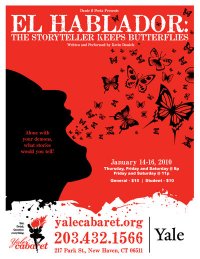Katharine Weber, True Confections, Shaye Areheart Books, 274 pp, $22
Katharine Weber’s True Confections takes the form of an affidavit by Alice Ziplinsky, née Tatnall, aka Arson Girl, a New Haven resident who has become the de facto head of Zip’s Candies, through a series of events -- both mishaps and good fortune -- that make for a sprawling, juicy tale in a relatively small compass.
Weber’s fifth novel is Alice’s first person account, offered for legal reasons, of her employment at Zip’s Candies, of her marriage to Howard “Howdy” Ziplinsky, and of her involvement in the family business, and, like the candies Little Sammies, Tigermelts, and Mumbo Jumbos that are the legacy of founder Eli Czaplinsky, Alice’s narrative creates textures that tantalize, tastes that surprise, and a memorable “mouthfeel.” Alice is intelligent, humorous, informative, but also slightly askew, perhaps even actionably unreliable.
Along the way, Weber furnishes engagingly deft sketches of New Haven and environs -- she has a feel for the city in its town and gown dichotomy, and provides glimpses of the city that used to be through evocation of the fortunes of the fictional, but highly realistic, Zip’s Candies. In the tale of a little, local company that must compete with the big name, real companies -- like Hershey and Mars -- Weber finds an apt figure for the fortunes of small businesses and small cities in the 21st century. We often find ourselves in a detailed subculture -- the world of candy manufacture and marketing -- that Weber, in the voice of Alice for whom every aspect of the business fascinates and who has “perfect pitch for the candy business,” delivers with great gusto.
Weber also provides a lot of fun by, as it were, peeking through Alice’s narrative with material that the narrator seems not too comfortable with, or perhaps may even be distorting for her own purposes. What is the true story of the fire, blamed on Alice, that burned down a schoolmate’s home in 1975? What exactly were the problems with her marriage to Howdy and why did he run off to Madagascar? And what of the alleged intrigues against Alice by her mother-in-law and her sister-in-law Irene? How sympathetic do we find Alice, the gentile in the Jewish family business, who becomes, by her own insistence, the one most concerned with the family legacy and her fond, deceased father-in-law’s wishes?
Loyalty is the key. The successful candy bar is supported by a consumer belief that he or she is honoring family traditions, so that loyalty is all bound up with nostalgia for childhood experiences either actual or longed-for. Ideally, too, the consumer has a sense of entitlement to self-indulgence driven by an ambivalence toward guilty pleasure. I mention all these things because my knowledge and experience in the candy manufacturing business in general, and with Zip’s Candies in particular, should be above question, but they have been questioned . . .
The questions Weber raises through Alice aren’t all simply personal either. Should we, today, consider a candy line founded on characters in Helen Bannerman’s Little Black Sambo racist? Is Alice painfully naive when she doesn’t think of the ramifications of packaging two chocolate Sammies on either side of a white chocolate Susie? Or is it the world -- Weber gives a quick glimpse of the blogosphere and its ability to create urban legend at will -- that has gone askew?
The book is at its best when Alice is delineating, with story-within-story spirals, her relations with the Ziplinskys -- particularly revealing are her dealings with Sam, her father-in-law, and the way she brings her and Howdy’s children into the business. The story of Eli’s brother Julius and the Nazi plan to ship Jews to Madagascar is fascinating but somewhat intrusive into the narrative, as Julius is a character who is never “real” to Alice, since she never meets him, and the story, ostensibly told to explain why the Ziplinskys have holdings in Madagascar where their cacao and other ingredients come from, seems material that could have been worked into a gripping novel in its own right, but which seems a bit outside the range of Alice’s voice, despite her admission that she is largely inventing what she can’t reconcile with those few facts she knows.
It’s largely the voice and direct experience of Alice that are the winning ingredients here, for she is the one who makes of her immersion in the candy business the basis for all there is to know about life, a way to take charge of the past, the family, the business, and, ultimately, the future. As Weber’s inscription from Anne Sexton would have it: “Even crazy, I’m as nice / as a chocolate bar.”
Katharine Weber will be appearing at Mitchell Public Library in Westville at 6:30 p.m. on Wednesday, January 13th, and at RJ Julia Booksellers, in Madison, at 7 p.m. on Thursday, January 21st.
